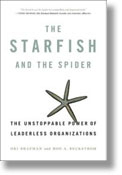Shack Cover 2
For those following our development of a cover for The Shack, we have another incarnation to show you. If you’d care to comment, we’d sure appreciate your input.

For those following our development of a cover for The Shack, we have another incarnation to show you. If you’d care to comment, we’d sure appreciate your input.

I spent the weekend in the Sierras with a group of men sharing about the transformation afforded to us through the power of the cross. We had talked about performance based living, versus affection based, and how the law is fulfilled in us as we live a life of love, not as we try to fulfill the law. Live loved, and love! It IS as simple as that.
At the end of the session one of the men sat down next to me. “You know what I’m hearing you say about the law?” he asked.
“I think the law tells us how to treat people we don’t love.”
Isn’t that a great statement? And I think it’s truth goes beyond people. Here’s what to do if you don’t love God enough to walk with him as Father. Here’s what to do if you don’t love yourself enough to live in God’s truth and instead want to indulge our free appetites. Here’s what to do if you don’t love others enough to treat them fairly, respectfully, and kindly.
But if you discover the power of God’s kind of love the law is a cheap substitute indeed. It only shows you what MUST be done, not what you CAN do to love as we have been loved by God. I really like that definition of the law.
The problem is, until you discover the power of love, you’ll never be able to keep the law. It is not in us to do by our own self-effort! Thanks be to God for Jesus Christ and his work in us!
A friend of mine attended two days of the recent National Religious Broadcaster’s Convention in Orlando, Florida. This brings together all the media people who seek to address the Christian audience. I guess they are as religious as their name portends. This was my friends report after walking around at the exhibits and listening to all the sales chatter.
Christianity in America is totally lost—so shame-based and twisted as evidenced by the books being peddled and the TV programs they were pushing.”
I’ve been in places like that in times past. If you ever go you’ll understand better Jesus’ frame of mind when he saw all the moneychangers and commerce going on in his Father’s temple. There is much many of those folks wouldn’t do for a dollar or a chance to expand their ‘market share.’
As bleak as his assessment was, however, he surrounded his comments with a few interesting asides.
Amazing how the whole environment did not bother me as much as it did the last time I was there….
and
At some point it is going to change… I think another generation is coming.
I was surprised that he saw it as far worse than before, but also that it didn’t bother him as much and had hope even beyond it. I asked about that and here’s his reply:
(I think I) less identified with it, is the phrase that fits best with my perception at this point. I also felt a tremendous freedom not to convince anyone there of anything. And I had a real sense that everyone is on their own journey, yet comforted by the fact that it is the same God that loves us. So, the word that comes to mind is “trust.” Trusting him with my journey and the journey of those around me.
You’ve got to love grace. Besides, this wasn’t Father’s temple, it was just a convention center built by people to host such activities.
On an unrelated note, I’m off to Central California today to a mountain retreat to help some men understand the cross and the implication of God’s love for them. You can pray for us all if you like!
You Gotta Love Grace! Read More »
 I’m reading a fascinating book that someone recently recommended to me. It is NOT a Christian book. It’s a book about an emerging business model written by a couple of Stanford grads, which makes it all the more frustrating. Why is it that the world sometimes recognizes what God is up to far sooner than most believers do? Our religious institution were consistently on the wrong side of creation of democracy, the fight to abolish slavery, the struggle for civil rights and respecting the rights of women, and here’s just another example of how they are caught in older forms the world is even reconsidering.
I’m reading a fascinating book that someone recently recommended to me. It is NOT a Christian book. It’s a book about an emerging business model written by a couple of Stanford grads, which makes it all the more frustrating. Why is it that the world sometimes recognizes what God is up to far sooner than most believers do? Our religious institution were consistently on the wrong side of creation of democracy, the fight to abolish slavery, the struggle for civil rights and respecting the rights of women, and here’s just another example of how they are caught in older forms the world is even reconsidering.
The Starfish and the Spider: The Unstoppable Power of Leaderless Organizations describes almost exactly (with one major flaw to be discussed later) how I understand the nature of the early church and what I see to be true in the body of Christ as it functions today in the world. Now, I’m not talking about organized religion here, but people who really have a heart for God and his work in the world.
The spider represents traditional organizations with CEO’s, hierarchical structures and heavy top-down management. If you cut off the head of a spider it dies. The starfish, however, represents decentralized communities that are far more effective and resilient. If you cut off the leg of a starfish, it will just grow a new one, and the leg itself will grow into another starfish. The starfish has no centralized brain, it is a system of neural networks that work together.
Granted the subtitle is a bit misleading. The authors aren’t really talking about leaderless organizations, but decentralized ones. Citing examples like Alcoholics Anonymous, Craigslist, Wikipedia, eMule, and others, they describe the power of individuals working together in ways that create incredible resources with surprising results:
This book is about what happens when on one is in charge. It’s about what happens when there’s no hierarchy. You’d think there would be disorder, even chaos. But in many arenas, alack of traditional leadership is giving rise to powerful groups that are turning industry and society upside down. (p. 5)
These starfish communities have tremendous power because they are not bogged down by the needs of an institution that compromise the values of the community itself. The contributions of the individuals who share a common passion are having far more impact than conventional institutional models. These communities prize relationship, engender trust, and pursue a purpose that transcends financial reward. One of the best discussions in this book is how leadership functions in these communities. They are not managers, but catalysts to ignite a passion in others and help them live it out. What the authors describe for a catalyst comes a close to the teachings of Jesus and the examples of the apostles in the New Testament as anything I’ve read before. They work behind the scenes, empower others, help people connect in circles of relationships, and never try to ensure that everything is orderly and certain. And what’s best, they never want to be in charge themselves, knowing how to work themselves out of the picture as others flourish.
They are much better at being agents of change than guardians of tradition. Catalysts do well in situations that call for radical change and creative thinking. They bring innovation, but they are likely to create a certain amount of chaos and ambiguity. Put them in a structured environment and they might suffocate. But let them dream, and they will thrive. (p. 131)
The Starfish and the Spider discusses the unique power of the Internet to allow these kinds of starfish communities to flourish. And, yes, these people are motivated by their self-interest. Imagine these decentralized communities, however, where people are functioning in the interest of Jesus himself. What this business model leaves out, of course, is the place of Jesus as the sole Head of his church that can never be destroyed. Imagine how the body of Christ could arise in our day if we experienced the power of these decentralized communities as people who are all listening and responding to him.
The world is now discovering the power of decentralized organizations in a way that we could have been living for 2000 years. I’m sure many believers did in those past generations, but unfortunately the powers of religion have always gravitated toward heavily authoritarian, centralized models as a means to amass riches and power. I love that so many of us are now discovering a different approach to life as the body of Christ that liberates us from the repressive institutions that destroy people to the freedom to demonstrate who he truly is in the world.
If that’s your passion, this book will show you just how powerfully it can happen. And if the business world can do it without Jesus, how much more powerful would it be for a community of people to live and work together like that who have surrendered their lives to Someone far greater than themselves. Maybe it’s time more of us embraced a new way of seeing the community of believers and how they can function in the world.
The Starfish and the Spider Read More »
I know not everyone appreciates this kind of humor, but I enjoyed it. This was sent to me by a creative bloke, Joe in Montana—The Law-Man: The Monthly Newsletter of Those Protecting God’s Law.
Heretic of the Year: Wayne Jacobsen
By Horace Nitpickle, staff writerHailing from the liberal bastion of Southern California, Wayne Jacobsen at first glance seems every inch the affable fifty-something everyman-next-door. He casually talks of sports, weather or the stock market. And God. Especially God.
And there lies the problem, according to Pastor Joe Ironwill, Senior Pastor of Church of the Law, a God-fearing congregation of true believers dedicated to protecting God’s Holy Law
from the wolves among us. For Jacobsen, with all of his cheerful talk of the love of God, harbors a dark secret. Jacobsen doesn’t believe in God’s Law.“This guy’s a real piece of work,†says Ironwill. “When it comes to subversive, he makes Ted Kennedy look like a John Bircher.†According to Ironwill, Jacobsen consistently rants against the very foundations of the faith. “The Tithe, the Five-Fold Ministry, Church
Attendance, you name it – he’s against them all. If he had his way, we’d all be running around unorganized and unproductive. There have been a lot guys out there yakking about ‘grace’ and ‘freedom,’ but this guy is even more whacko. He actually believes it.â€What’s especially disturbing, says Ironwill, is that people are listening. Like many of Satan’s minions, this fallen-away ex- pastor has embraced the curse of our age – technology. “In the old days, a nutcase like this would have a few groupies in robes following him around, buying him a Mercedes now and then. Now we’ve got people all over the world listening to this garbage. We can all thank Al Gore and the Internet for that.â€
Asked why Jacobsen’s perspective seems to touch a cord in so many believers, Ironwill turns vehement. “This guy’s a genius – an evil genius, but a genius nonetheless. He goes after one of the largest segments of believers – the unsubmitted. These are the guys who are too lazy to volunteer for our programs, too cheap to tithe, too rebellious to follow God’s Anointed. They whine about wanting more of God, but won’t even spend a few hours in prayer each day. They’ll come home and watch the news and not even open their Bibles before supper. This Jacobsen character gives them an excuse to be unsubmitted – he tells them that it’s okay. He’s a real bottom-feeder.â€
Asked what can be done about people like Jacobsen, Ironwill replied… (continued on page 2)
Also In This Edition
With all the sin in the world, could a holy God really smile? Learn more about the myth of a “happy†God and why this dangerous teaching is spreading. Pg. 4
10% Tithe “Not Enough,†says Pastor. We’ve all done it – attended our Sunday morning worship, written our tithe check for ten percent (of our gross, we hope!), and then at brunch after church left a tip for…15%. “This just isn’t right,†fumes Pastor Joe Ironwill of the Church of the Law. “Are we going to give God only 10% while some teenage waitress at the Cracker Barrel gets 15%? What does that say about our commitment to God?†Touting the phenomena of “Tithe Inflation,†Pastor Ironwill believes that 15% should be the new minimum standard. “Serving God is not as cheap as it used to be,†says Ironwill. “Anyone involved in a Church building project knows that the costs involved for architects, insurance, triple-pane glass, Youth Pastor salaries, etc., add up real fast. God’s Kingdom is powerful, but it does not come cheap.â€
Continued on pg. 5
Yes, this is a spoof. No, there weren’t really any page 2, 4 or 5, so that’s all that was written. And I don’t know where they got some of that stuff. I do believe in the Ephesians 4 gifts to the body, but I see them applied very differently than the institutional way many people think of them. Humor makes some powerful points! Can you believe, ‘the myth of a happy God’? Unfortunately that’s how some people see it.
Heretic of the Year Read More »
Over at The God Journey, Brad and I did a podcast on The Blame Game. We have been amazed at how various ones have processed and responded to this podcast.
Today someone sent me to a link to the Live With Desire blog that has some extended comments on that podcast. I think you’ll be blessed by Heidi’s reflections and what God is doing in her life to set her free from the paralyzing shame that impacts many. It really encouraged me. Good on you, Heidi!
Reflections on Shame Read More »
I don’t know what’s going on exactly, but I’m getting a bit of email these days from folks that are finding freedom from depression in part because of some of the things they’re reading here, but I think we all know who is really responsible for their freedom.
But it blesses me nonetheless to hear how God is drawing people out of long and deep places of darkness and setting them in the warmth of his life and grace. I do think Christianity as religion actually promotes and prolongs depression with its focus on performance, its trust in intellectual answers alone and its use of guilt to try to make people do better. As well-intentioned as all that might be, it can be incredibly destructive for people caught in depression.
I got this earlier in the week with a book order from Rick:
I am so thank for your willingness to make the Jake book and Transitions available for free. God has used you to literally save my life, I was severely depressed and ravaged with guilt a year ago and considering making an end of myself, but now I live free knowing that I have an affectionate father who loves me. Thanks be to God for your ministry.
And I received a longer story from a sister still in the process, but I so appreciate where God has led her and where he continues to lead her. I met this lady this past summer and she lives in what’s called the Heartland of the US.
I am 45 years old today. One psychologist estimated I have suffered from chronic mild depression since I was 12 years old. I have to date never been suicidal. However, I have so bought the lie that if I did everything right, then I would get to look emotionally balanced and mature. The way I have addressed the problem has been so shame-based. Mature Christians don’t get depressed.
Religion, especially the brand I was raised in, put I high premium on rational thought, logic, creeds. Emotion and passion were pretty suspect. Well, I don’t have to be embarrassed about being an emotional person anymore. Organized religion tends to shun and stigmatize mental illness. I had another friend who lost her husband to schizophrenia. She said if he had had cancer she would have had overwhelming support, but got very little when her husband left her and their children as a result of his mental illness. Most of these illnesses are not about making “right choices†at all.
One pastor told me if I just found goals and vision for my life I’d be excited not depressed. OK I am already finding everyday life overwhelming, and he wants to add tasks to the pile. He’s been down; he’s been sad. He doesn’t understand depression. What I needed most was to be let off the hook.
I am still struggling, but for the first time I realize He loves me whether I get over this thing or not. It’s not up to me. I have been so ashamed of this weakness. Whether I break free from depression or not, I am still free because I don’t have to fight and try so hard to be healthy. He can do whatever He pleases with me because I trust Him. I’m going to stop demanding that He change me and see what He does with it. It’s spoiled my relationship with my Father long enough.
John Eldredge once said to me that some of the best times, the most restful and inviting times, he had with me were when I was a mess. And for years I’ve thought what the hell did he mean by that. Now I know. In those moments I stopped trying so hard to be perfect and just was what I was. Being me even the broken messed up me was better than the fake striving I invented because I was ashamed of the real me. I think he said that to me in 1998; I am as thick as a post—but God loves me anyway.
Last night my husband was just driving me around because he had to get me out of bed and break up a crying spell. We talked about medication or another counselor. You know that scripture in which Paul brags about how religious and what a great Pharisee he was. Well I’ve had three counselors, a psychiatrist, a curse breaking, demon kicking prayer guy, theophostic prayer, etc. I’ve been through ancient paths and living waters programs. I’ve read a library of books. I said I give up. I surrender to God. Now those weren’t all bad things really. You see getting over being a depressed person has been what my relationship with God has been all about. I can be part of the adventure right now; he loves me as I am. If this battle could be won by learning, talking, confessing, rebuking, forgiving and believing, it would have be won by now. I am not worried about or embarrassed by depression and anxiety anymore. Now that I am convinced I am loved nothing else matters; it’s all I ever wanted.
I really think laying down the fight and embracing love will go a long way towards leading me through the final stages of healing. I think at the bottom of depression is I am unloved and unlovable. I will always be very, very sensitive and there is no doubt a good purpose in that. There is much I have thought needed to be fixed that doesn’t need to be fixed. I love this quote from John Milton’s sonnet about going blind. Here’s the one of the greatest poet’s in Western literature. He’s losing his sight. How is he going to read and write? The last line reads, “They also serve Him who only stand and wait.†One of my favorite poems. Anyway I go on and on. This in an incredible epiphany for me; you had a hand in it. I thought you would enjoy knowing.
I love what God did in Rick and what he is doing in this sister, and their experiences speak louder than anything I could say. I always encourage people to take depression seriously. Religious folks tend to blame themselves and try harder, which, as you read here, only intensifies the depression. This is a battle few can fight alone. If you’re caught in depression find someone to help you walk out of it. Don’t find someone steeped in religion and human performance, because that won’t help. That’s often why a secular counselor can be more helpful for someone in depression than a religious one. But get help! Causes very for different people, but it is important that you find a way to reverse the spiral and find your way into greater freedom.
Freedom from Depression Read More »
 If you haven’t heard my voice blathering enough on the web, there are two new interviews now available.
If you haven’t heard my voice blathering enough on the web, there are two new interviews now available.
A few months ago I did an interview for a Canadian TV show called On the Edge about the Jake Colsen book and my other passions in this kingdom. . That interview is airing today (Friday) at 2:30 p.m. Pacific Time on the Miracle Channel in Canada. You can stream it online if you like by going to The Miracle Channel and clicking the ‘Watch Us Online” button. It will also re-air tomorrow (Saturday) afternoon at 3:00 Pacific Time. This is the second part of the interview. The first part aired last week, which I didn’t know about. The final part will air next weekend (February 23-24) at the same times.
I also did a podcast interview with the folks at Plain Truth Ministry that is now on their website. This is as clear an introductory piece as I have done on Lifestream and what we hope Father accomplishes through my writing and sharing. You can listen to my interview here.
Recent Interviews On-Line Read More »
A great big thanks to all of you who have offered your input. For those who’d like to see the back cover concept to date and to get a bit more feel for what’s in the book, here it is!
Look at the cover below:

And if you haven’t commented yet, please feel free to…
Many of you know I am involved in helping bring a new novel and novelist to the public table with a book that has captured my heart. The folks I’m involved with want to do a bit of focus group consideration for a cover concept. If you’d like to give us your feedback, that would be awesome.
Look at the cover below:

The less you know about the book, the better, since we just want some reader input from the cover design itself. If you don’t mind could you either leave a comment here or email me to let me know what you think.
What kind of book would you expect behind the cover?
Does this entice you to read it or turn you off?
Are you male or female?
Feel free to make any other comments about what you like or dislike about he cover.
We hope to have the book out around May 1.
Thanks.
Can I Have A Little Help? Read More »